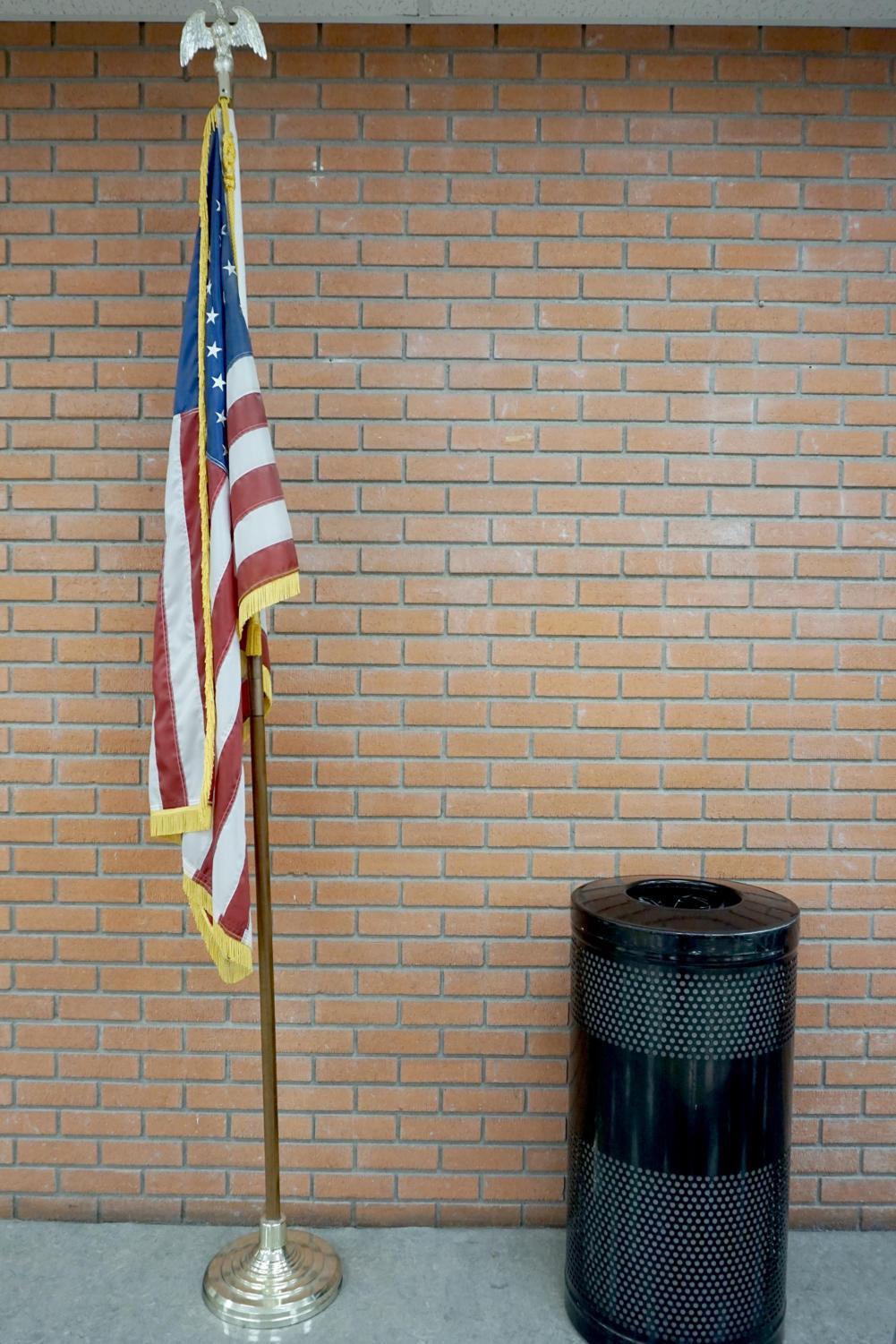As political polarization continues to divide students, it would seem that conservative students tend to make up a smaller population on liberal leaning campuses such as Cal State Long Beach, Cal State Fullerton and UCLA.
But Long Beach Turning Point USA members want you to know they are proud to be American. At least, that’s what some of their signs read. The right-leaning political organization, which is part of a national nonprofit organization, recently opened a chapter at the university.
Tyler Perrin, marketing major and member of Turning Point who proudly flaunts the stars and stripes on his shorts, doesn’t consider the organization exclusively right or left wing.
“There [are] Republican and college Democrats and then there is us,” Perrin said. “Realistically, we want everybody in our group. Anyone who supports free speech and common values is welcome.”
Last year the UCLA Higher Education Research Institute conducted a survey of college freshmen, asking them if they identified as “liberal,” “far left,” “conservative” or “far right.” Thirty-five point five percent of incoming students identified as “liberal” or “far left,” while 22.2 percent identified as “conservative” or “far right.” According to The Atlantic, this is the most polarized that college freshmen have been in the last 51 years.
The difference between “free speech” and “hate speech” has been a subject of debate recently as hate crimes involving racial writing in campus bathrooms and death threats made online to La Raza Student Association have called for the involvement of University Police.
“What gets this jump started?” said Charles Noble, a political science professor at CSULB who specializes in comparative public policy and social movements. Noble says he believes that the election of a black president provided a mainstream of racial diversity and multiculturalism that angers white people, who are reaffirmed as victims by conservative media.
Zsofia Szlovak, an English literature and political science major and a member of College Democrats, agrees that while campus members do tend to lean left, the school still welcomes diversity of thought.
“For the most part, we are all here to get an education and be respectful to one another,” Szlovak said. “With regard to conservative speakers in general, not just alt-right [speakers], it seems as if there isn’t as much of a desire for those types of speakers.”
Although conservative students may be outnumbered on campus, conservative organizations still try to remain active. Both Turning Point and Young Americans for Liberty held a Free Speech Event on campus Oct. 19, asking students if they support free speech and encouraging them to sign a large beach ball.
“I feel like most campuses are liberal. But it’s not really the students,” said Oscar Acevedo, a political science major and president of Turning Point. “I feel like it’s more professors and administration who don’t give them the full perspective.”
Since the election of President Donald Trump, the university has seen a number of demonstrations from groups such as Muslim Students Association, La Raza and others who disagree with the new president and his policies.
“Both conservative and liberal students have a voice on campus,” said Jael Espinoza, an international studies and political science major and president of the Long Beach chapter of Young Americans for Liberty, a libertarian nonprofit organization. “There are many staff and faculty members that do an incredible job of creating a quality educational environment for students to think, share and exchange ideas and ask questions.”
College news watchdog Campus Reform reported that out of the 12 speakers of note which Cal State Long Beach hosted in the 2016-2017 academic year, zero identified as conservative.
This Halloween, Cal State Fullerton’s College Republicans hosted Milo Yiannopoulos, a highly controversial political personality and right-wing firebrand, sparking a petition for cancellation, a counter-event and small protests resulting in eight arrests that night.
Kevin Johnson, director of the Center for First Amendment Studies and associate professor of communication studies, said an easy way for students to protest a speaker they dislike is by simply not purchasing tickets to the event.
“If students are wanting to not have a speaker like Milo then don’t give him the spectacle,” Johnson said.




